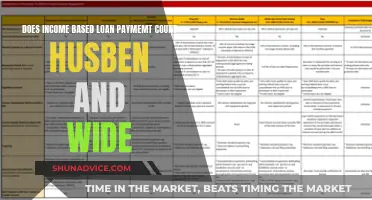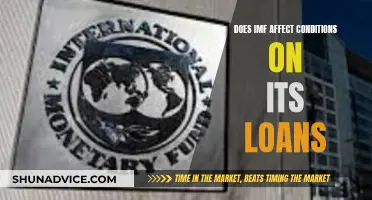
On September 25, 2008, JPMorgan Chase acquired the banking operations of Washington Mutual, including its assets and certain liabilities, from the Federal Deposit Insurance Corporation (FDIC). The acquisition, which cost JPMorgan Chase approximately $1.9 billion, marked the biggest bank failure in US history and expanded the company's consumer branch network into several states. While JPMorgan Chase assumed all mortgages and loans of Washington Mutual, there is some controversy surrounding the acquisition, with some alleging that JPMorgan Chase stole Washington Mutual mortgages.
What You'll Learn
- JPMorgan Chase acquired Washington Mutual's banking operations in 2008
- JPMorgan Chase paid $1.9 billion to the Federal Deposit Insurance Corporation (FDIC)
- JPMorgan Chase did not acquire any of Washington Mutual's banks' senior unsecured debt
- JPMorgan Chase's acquisition of Washington Mutual expands its consumer branch network across the US
- JPMorgan Chase's acquisition of Washington Mutual was its second major purchase in 2008

JPMorgan Chase acquired Washington Mutual's banking operations in 2008
On September 25, 2008, JPMorgan Chase & Co. announced it had acquired all deposits, assets, and certain liabilities of Washington Mutual's banking operations. The acquisition was made from the Federal Deposit Insurance Corporation (FDIC) and was worth approximately $1.9 billion.
The deal excluded the senior unsecured debt, subordinated debt, and preferred stock of Washington Mutual's banks. JPMorgan Chase did not acquire any assets or liabilities of the banks' parent holding company (WM) or the holding company's non-bank subsidiaries. The acquisition expanded JPMorgan Chase's consumer branch network into California, Florida, and Washington State, creating the nation's second-largest branch network, with locations reaching 42% of the U.S.
The acquisition was expected to be immediately profitable, adding more than 50 cents per share in 2009. JPMorgan Chase expected to incur pre-tax merger costs of approximately $1.5 billion while achieving annual pre-tax cost savings of approximately $1.5 billion by 2010. The bank planned to complete most systems integrations and rebranding by the end of 2010, closing less than 10% of branches in overlapping markets.
However, there have been allegations of a scheme by JPMorgan Chase to steal Washington Mutual mortgages. These allegations claim that JPMorgan Chase was not the "successor in interest" to Washington Mutual Bank, and that the FDIC did not acquire any WMB "loans" that were sold and securitized. There is also evidence suggesting that most, if not all, WMB securitized "loans" were assigned to the "WaMu Asset Acceptance Corporation" (WMAAC), which was not included in the Purchase and Assumption Agreement (PAA) between JPMorgan Chase and Washington Mutual.
Christmas Loans: Jackson Hewitt's Holiday Offerings Explored
You may want to see also

JPMorgan Chase paid $1.9 billion to the Federal Deposit Insurance Corporation (FDIC)
JPMorgan Chase & Co. acquired all deposits, assets, and certain liabilities of Washington Mutual's banking operations from the Federal Deposit Insurance Corporation (FDIC) in 2008. The acquisition was announced on September 25, 2008, and was said to be immediately effective. As part of the transaction, JPMorgan Chase agreed to make a payment of approximately $1.9 billion to the FDIC.
The acquisition of Washington Mutual's banking operations was expected to be immediately accretive to earnings and to add more than 50 cents per share in 2009. JPMorgan Chase expected to incur pre-tax merger costs of approximately $1.5 billion while achieving annual pre-tax cost savings of about $1.5 billion by 2010, net of significant investments in the business. The bank planned to complete most systems integrations and rebranding by the end of 2010, closing less than 10% of branches in overlapping markets.
JPMorgan Chase's acquisition of Washington Mutual's banking operations expanded its consumer branch network into attractive states such as California, Florida, and Washington. This created the nation's second-largest branch network, with locations reaching 42% of the U.S. population. The acquisition also aligned with JPMorgan Chase's strategic goal of broadening its footprint to better serve its current and future customers. Charlie Scharf, head of Chase's Retail business, emphasized that Washington Mutual customers would benefit from Chase's broader network and wider product range, all backed by the strength and security of JPMorgan Chase.
However, the acquisition was not without its challenges. In 2013, JPMorgan Chase sued the FDIC in federal court, seeking more than $1 billion in compensation. JPMorgan Chase alleged that the FDIC had breached its contract and breached the covenant of good faith and fair dealing by not assuming legal claims arising from its acquisition of Washington Mutual's assets. The bank claimed that it was entitled to compensation for various costs and settlements arising from bad loans, lawsuits, and tax obligations related to Washington Mutual. The lawsuit highlighted the complexity and risks associated with large-scale acquisitions in the banking industry.
IRS and Loans: What the IRS Knows
You may want to see also

JPMorgan Chase did not acquire any of Washington Mutual's banks' senior unsecured debt
On September 25, 2008, JPMorgan Chase & Co. announced it had acquired all deposits, assets, and certain liabilities of Washington Mutual's banking operations from the Federal Deposit Insurance Corporation (FDIC). The acquisition was expected to be immediately profitable for the company, adding more than 50 cents per share in 2009.
However, it is important to note that JPMorgan Chase did not acquire any senior unsecured debt, subordinated debt, or preferred stock of Washington Mutual's banks. This was explicitly stated in the announcement of the acquisition, where it was clarified that the company would also not be taking on any assets or liabilities of the banks' parent holding company, Washington Mutual Inc. (WM), or the holding company's non-bank subsidiaries.
The exclusion of senior unsecured debt from the acquisition is a significant aspect of the deal. Senior unsecured debt refers to debt obligations that are not backed by any collateral or credit enhancement. These debts are often riskier for investors as they are not secured by any assets or guarantees. By not acquiring this type of debt, JPMorgan Chase limited its exposure to potential losses associated with Washington Mutual's riskier financial obligations.
The acquisition of Washington Mutual's banking operations by JPMorgan Chase highlights the challenges faced by financial institutions during the 2008 financial crisis. Washington Mutual had accumulated significant losses, particularly in the mortgage market, and was seized by the FDIC. The deal cost JPMorgan Chase $1.9 billion, and the company planned to write down Washington Mutual's loan portfolio by approximately $31 billion. The acquisition allowed JPMorgan Chase to expand its physical presence in key states, including California, Florida, and Washington, and enhance its retail banking business.
Huntington Loans: What You Need to Know
You may want to see also

JPMorgan Chase's acquisition of Washington Mutual expands its consumer branch network across the US
On September 25, 2008, JPMorgan Chase & Co. announced it had acquired all deposits, assets, and certain liabilities of Washington Mutual's banking operations from the Federal Deposit Insurance Corporation (FDIC). The acquisition, which cost JPMorgan Chase approximately $1.9 billion, did not include the senior unsecured debt, subordinated debt, and preferred stock of Washington Mutual's banks. Nor did it include any assets or liabilities of the banks' parent holding company (WM) or WM's non-bank subsidiaries.
The acquisition of Washington Mutual's banking operations was expected to be immediately profitable, adding more than 50 cents per share in 2009. JPMorgan Chase expected to incur pretax merger costs of approximately $1.5 billion while achieving annual pretax cost savings of approximately $1.5 billion by 2010. The bank planned to complete most systems integrations and rebranding by the end of 2010, closing less than 10% of branches in overlapping markets.
JPMorgan Chase's acquisition of Washington Mutual expanded its consumer branch network into California, Florida, and Washington State. This expansion created the nation's second-largest branch network, with locations reaching 42% of the U.S. population. The acquisition also gave JPMorgan Chase access to Washington Mutual's customers, who could now take advantage of Chase's broader network and wider product range, all backed by the strength and security of JPMorgan Chase.
Following the acquisition, customers of both companies could continue banking as usual, with the added benefit of having their deposits secured by JPMorgan Chase. Employees and vendors of both companies were instructed to continue operating business as usual.
Journalism and Public Service Loan Forgiveness: Do They Qualify?
You may want to see also

JPMorgan Chase's acquisition of Washington Mutual was its second major purchase in 2008
On September 25, 2008, JPMorgan Chase & Co. announced it had acquired all deposits, assets, and certain liabilities of Washington Mutual's banking operations from the Federal Deposit Insurance Corporation (FDIC). The acquisition, which cost JPMorgan Chase approximately $1.9 billion, did not include senior unsecured debt, subordinated debt, and preferred stock of Washington Mutual's banks.
The acquisition of Washington Mutual's banking operations was expected to be immediately accretive to earnings and to add more than 50 cents per share in 2009. JPMorgan Chase expected to incur pretax merger costs of approximately $1.5 billion while achieving annual pretax cost savings of approximately $1.5 billion by 2010. The bank planned to complete most systems integrations and rebranding by the end of 2010, closing less than 10% of branches in overlapping markets.
Following the acquisition, Washington Mutual customers could take advantage of JPMorgan Chase's broader network and wider product range, backed by the strength and security of the company. Over time, JPMorgan Chase provided more personal bankers, business bankers, loan officers, and investment advisors to serve the needs of Washington Mutual customers and expand their relationship with the company.
However, there have been allegations and lawsuits regarding JPMorgan Chase's acquisition of Washington Mutual's mortgages. Some sources claim that JPMorgan Chase engaged in a scheme to steal Washington Mutual's mortgages, committing routine perjury, document fabrications, and forgeries. There are also allegations of mortgage servicing fraud, with claims that Washington Mutual intended to commingle collections on mortgage loans with its own funds for its benefit.
Interest-Only Loans: Amortization and Its Complexities
You may want to see also
Frequently asked questions
Yes, JPMorgan Chase acquired all deposits, assets, and certain liabilities of Washington Mutual's banking operations on September 25, 2008.
Customers of Washington Mutual can continue banking as usual, with the added confidence that their deposits are now backed by the strength and security of JPMorgan Chase. Over time, they will be able to take advantage of Chase's broader network and wider product range.
Employees and vendors of Washington Mutual should continue to operate business as usual.
While JPMorgan Chase did assume all mortgages and loans of Washington Mutual, there is controversy surrounding the acquisition of certain loans. Some sources claim that JPMorgan Chase stole Washington Mutual mortgages and engaged in mortgage servicing fraud.







